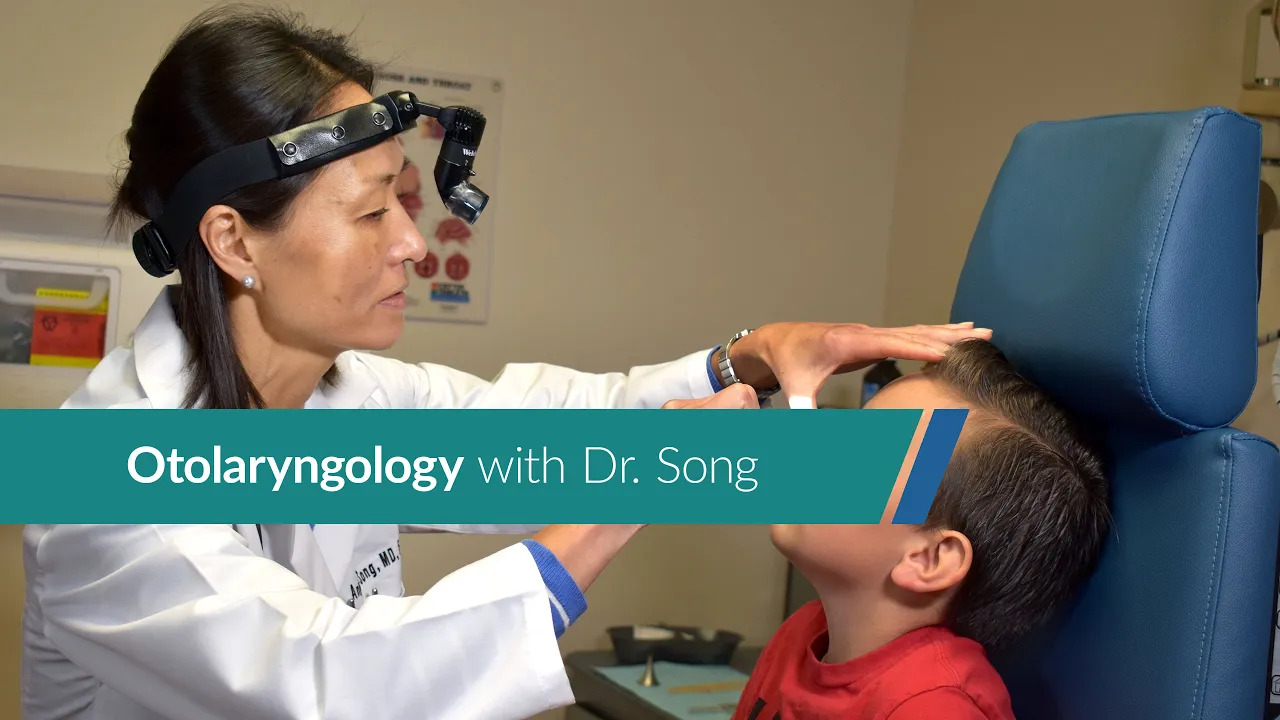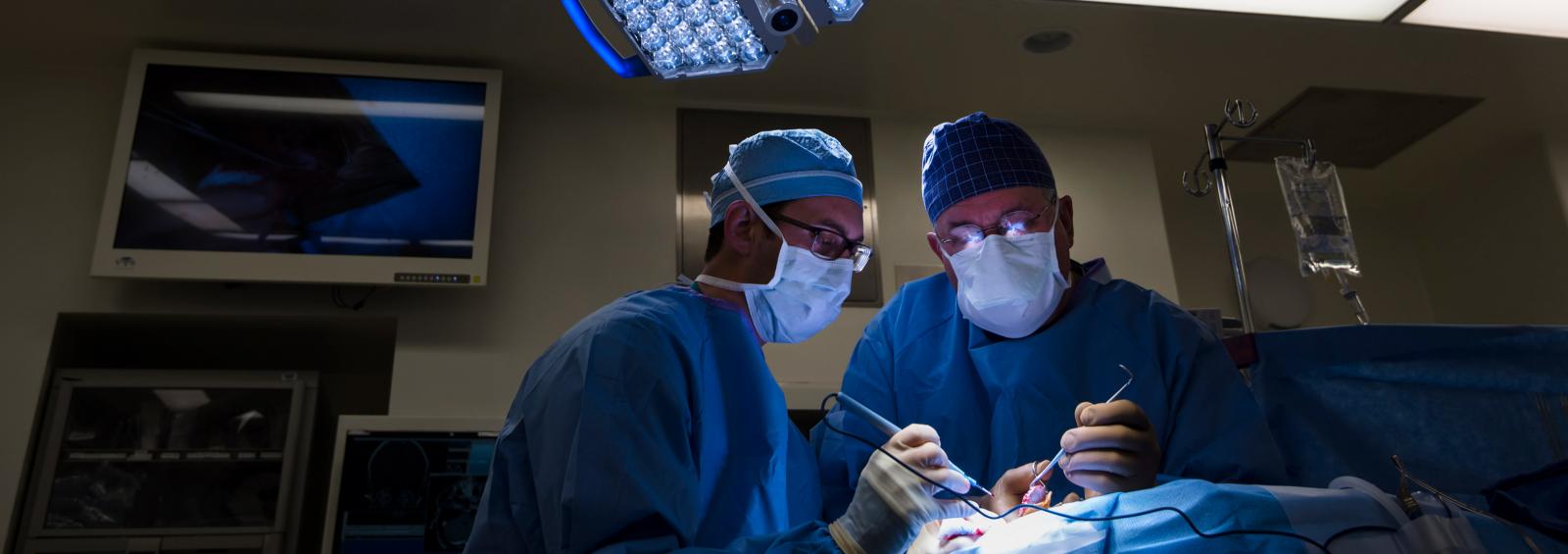What Makes an ENT Over a General Practitioner for Chronic Issues
What Makes an ENT Over a General Practitioner for Chronic Issues
Blog Article
Checking out the Area of Otolaryngology: What to Anticipate When You Speak With an ENT
Otolaryngology, frequently described as ENT, incorporates the diagnosis and therapy of throat, ear, and nose conditions. For those experiencing relevant concerns, consulting an ENT expert can supply clarity and alleviation. Comprehending what to anticipate during such assessments is necessary for effective communication and treatment. This summary will detail essential aspects of the ENT experience, including typical reasons for brows through and the procedures included in medical diagnosis and therapy.

Comprehending Otolaryngology: A Review
Otolaryngology, commonly described as ENT (Nose, throat, and ear) medication, is a specialized branch of medication that concentrates on the medical diagnosis and therapy of problems influencing these essential areas of the human body. This field encompasses a variety of conditions, consisting of those related to hearing, equilibrium, breathing function, and speech. Otolaryngologists are educated to manage both surgical and clinical treatments, making use of advanced strategies and technologies. Their expertise expands beyond conventional conditions, addressing problems such as allergic reactions, sinus infections, and hearing loss. Furthermore, they play an essential role in the management of head and neck cancers cells, offering comprehensive care tailored to specific person demands. In general, otolaryngology continues to be necessary for preserving health and wellness and lifestyle in afflicted individuals.
Common Factors to See an ENT Expert
Lots of individuals seek the competence of an ENT expert for a range of factors, mirroring the diverse nature of problems that influence the ear, throat, and nose. Typical problems include chronic sinusitis, which frequently leads to consistent nasal blockage and facial discomfort. Allergies and their linked symptoms, such as sneezing and itching, additionally motivate check outs to these professionals (ENT Doctor). Hearing loss, whether unexpected or gradual, is an additional substantial factor for appointment. Additionally, individuals may seek assessment for throat problems, consisting of relentless hoarseness or ingesting problems. Sleep apnea, defined by disrupted breathing throughout sleep, is frequently addressed by ENT experts. Each of these problems highlights the value of specialized care in handling intricate ENT-related health issues
Planning for Your ENT Visit
When getting ready for an ENT appointment, it is necessary to gather appropriate info and consider any kind of certain issues. Clients should compile a detailed case history, consisting of previous ear, nose, or throat problems, surgical procedures, and present medicines. Documenting symptoms-- such as extent, frequency, and duration-- can provide useful insights for the ENT expert. Furthermore, individuals ought to prepare a listing of questions they want to ask, ensuring that all problems are resolved throughout the browse through. Bringing along any kind of appropriate medical documents or examination results can even more aid the ENT in recognizing the individual's condition. Finally, clients need to verify their visit information, consisting of time, location, and date, to decrease any type of last-minute complication. Proper preparation can boost the effectiveness of the appointment and bring about much better end results.
What to Anticipate Throughout the Examination
As the consultation begins, the client can expect to engage in a detailed discussion with the ENT expert regarding their signs and symptoms and clinical background. The professional will certainly ask about the period, regularity, and intensity of symptoms such as hearing loss, nasal blockage, or aching throat. Additionally, the person's previous medical conditions, drugs, and any pertinent household history will certainly be assessed, assisting the professional in developing a full understanding of the client's health. The ENT might additionally inquire about way of life variables, such as direct exposure to allergens or irritants. This open discussion develops a foundation for the appointment, making certain that the individual's issues are dealt with and setting the phase for any needed analyses or referrals for treatment.
Analysis Tests and Procedures in Otolaryngology
A variety of analysis tests and procedures are important in otolaryngology to properly examine and identify problems affecting the ear, nose, and throat. Usual examinations include audiometry, which determines hearing function, and tympanometry, assessing middle ear pressure. Nasal endoscopy permits visualization of the nasal passages and sinuses, while laryngoscopy examines the throat and singing cords. Imaging strategies, such as CT scans and MRIs, offer comprehensive views of head and neck structures. Allergic reaction screening might additionally be conducted to recognize triggers for sinus or respiratory problems. These diagnostic devices make it possible for ENT professionals to establish a detailed understanding of people' problems, making sure customized and effective administration plans. Appropriate diagnosis is crucial for successful treatment outcomes in otolaryngology.
Therapy Choices Offered by ENT Specialists
ENT experts use a selection of treatment options customized to deal with certain problems affecting the throat, ear, and nose. These treatments vary from traditional methods, such as medicine and lifestyle alterations, to more invasive procedures. For example, allergic reactions might be managed with antihistamines or immunotherapy, while persistent sinusitis might need nasal corticosteroids or sinus surgical procedure. For hearing loss, ENT professionals usually recommend listening devices or surgical interventions like cochlear implants. In instances of throat disorders, alternatives can consist of speech treatment or operations to remove blockages. Furthermore, they might provide advice for handling sleep apnea, consisting of making use of CPAP devices or surgical treatments. On the whole, the goal is to improve patients' lifestyle via individualized care and efficient treatment methods.
When to Seek Follow-Up Care With an ENT
Recognizing when to look for follow-up treatment with an ENT specialist is important for managing ongoing signs and symptoms or issues related to throat, nose, and ear conditions. Clients must consider setting up a follow-up visit if signs and symptoms linger despite first treatment, such as persistent ear pain, nasal congestion, or throat discomfort. Changes in deaf services hearing, equilibrium problems, or uncommon nasal discharge might likewise warrant further examination. In addition, if a patient experiences negative effects from recommended drugs or has undergone a medical treatment, follow-up care is very important to keep an eye on recovery and resolve any kind of concerns. Timely appointments can guarantee effective management of conditions, avoid prospective complications, and provide comfort concerning one's health. Seeking follow-up treatment promotes aggressive health and wellness administration in otolaryngology.
Frequently Asked Questions

What Qualifications Should I Try to find in an ENT Professional?
When looking for an ENT professional, one must look for board certification, appropriate experience, and solid client reviews. Additionally, reliable interaction skills and a caring technique can considerably enhance the general therapy experience.
Just how Do I Pick the Right ENT for My Needs?
Picking the appropriate ENT specialist includes evaluating their credentials, experience, and patient evaluations (Hearing). It is important to contemplate their communication design and method to therapy, ensuring they line up with the individual's details health requirements and preferences
Exist Any Kind Of Threats Connected With ENT Procedures?
The threats related to ENT procedures might include infection, bleeding, anesthetic problems, and possible damages to surrounding frameworks. Individuals must review these threats with their doctor to understand private problems and warranty educated choices.
How Can I Handle Stress And Anxiety Before My ENT Consultation?
To handle anxiousness before an appointment, individuals can Full Article exercise deep breathing exercises, imagine favorable results, prepare concerns beforehand, and seek support from pals or family members, cultivating a sense of reassurance and calmness.
What Should I Do if I Experience Negative Effects From Treatment?
The individual should promptly report them to their health care supplier if side impacts from therapy happen. Modifications to treatment or extra interventions might be necessary to assure safety and security and performance in handling their problem - ENT Doctor. As the examination begins, the client can anticipate to engage in a comprehensive conversation with the ENT professional concerning their signs and medical history. These diagnostic devices allow ENT specialists to establish a thorough understanding of clients' problems, making certain tailored and effective monitoring plans. ENT professionals offer a range of treatment options customized to resolve certain conditions impacting the throat, nose, and ear. When looking for an ENT expert, other one need to look for board certification, relevant experience, and solid client testimonials. Selecting the ideal ENT specialist entails examining their credentials, experience, and person evaluations
Report this page